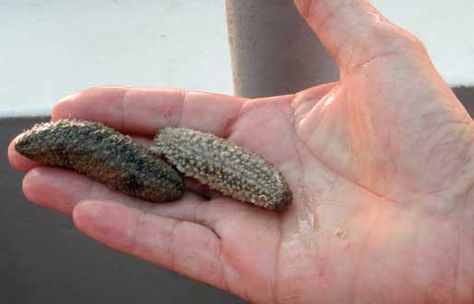[Jeddah, KSA – May 2013] National Aquaculture Group has stepped a steady foot in the aquaculture field aiming at maintaining a more balanced marine life by farming this highly valued species, the Sea Cucumber (Holothuria Scabra); and to meet market's huge demand for nutritional products. After 3 years of research and development the most outstanding issue is the achievement of a biological cycle of sea cucumber in harvest conditions, therefore we can say that the company has ensured the sustainability of this business.
In Saudi Arabia a one of its kind project is growing and investing in technology and research. The Sea Cucumber is an excellent example on this effort and comes with high expectations. 90 tons of Holothuria Scabra, known as sea cucumber, is expected to be harvested within the first year.
This huge success took place after overcoming a long process of investigation, development and careful monitoring. National Aquaculture Group workers have put their hearts and set their minds and determination on this project which will guarantee a sustainable marine base production (Marine culture) to fulfill market’s needs and maintain a balanced marine life.
Pointing out this achievement, Engineer Ahmad R. Al-Ballaa, Managing Director of National Aquaculture Group and board chairman of Saudi Aquaculture Society, said: “We own the pride of achieving such a big project which is one of its kind in the region. It has consumed more than 3 years of constant researching and experimenting carried by a team of professionals in the field of aquaculture. Thanks God for this additional achievement added to our series of the like in this domain.”
He adds: “Our first steps and achievements on this long path were the ones towards a successful shrimp project which are followed by the fish projects that are getting thumbs up worldwide. An additional milestone in this journey in the Saudi land known for its fertile nature would be the Sea Cucumber brood stock’s ability to lay its eggs, producing herewith 23 million larvae. This will ensure availability of a stock for coming years of wild mothers, which are belonging to the different strains that has been collected from different places in coasts of KSA”.
